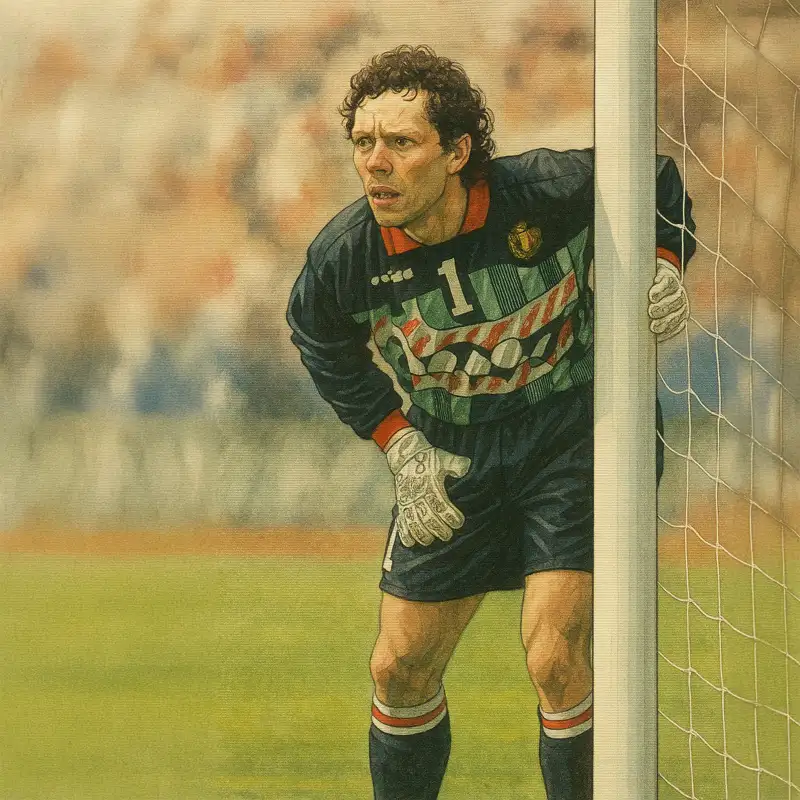
There are players who shine young and fade, others who burn brightly for decades. And then there are those who arrive when the world is no longer looking—yet leave a mark impossible to forget.
Michel Preud’homme was already a legend in his homeland long before he became a name whispered across Europe. For most of his career, he remained a Belgian treasure—admired, applauded, but somehow untouched by the larger stage. That changed in the summer of 1994.
At the age of 35, when most footballers are leaning toward retirement, he lit up the World Cup with a series of performances so majestic they transcended nationality. That summer didn’t just crown him the best goalkeeper in the world—it granted him the recognition he had long deserved. And it opened the door to Benfica, where he became more than a player. He became myth.
The Foundation at Sclessin
Michel Preud’homme began his senior career at Standard Liège, making his debut in 1977. For the next seven seasons, he was an immovable presence in goal—a fixture at Sclessin and a rising star in Belgian football.
He formed the backbone of a side guided by one of the most iconic figures in Belgian coaching: Raymond “Le Magicien” Goethals. Under Goethals, Standard won consecutive league titles in 1981–82 and 1982–83, powered by a commanding spine that included national team captain Eric Gerets, Walter Meeuws, Gerard Plessers, Guy Vandersmissen, Jos Daerden, and the mercurial Dutch pair Arie Haan and Simon Tahamata.
In 1981, they lifted the Belgian Cup. The following year, they reached the final of the UEFA Cup Winners’ Cup—facing Barcelona at Camp Nou. Standard led early but eventually lost 2–1. The decisive moment came when Quini scored from a free kick taken before the referee’s whistle. Though the goal stood, it left the Standard players furious. It was Preud’homme’s first taste of European heartbreak.
But darker days followed.
The Scandal That Shook Standard
The 1982–83 season ended in glory, but behind it lay scandal. In an attempt to guarantee the title in the final matchday, it was later revealed that several Standard players and staff had bribed Waterschei players to ensure they would not play with full effort.
Preud’homme, then a young cornerstone of the team, was among those sanctioned. In 1984, he received a six-month suspension from the Belgian FA. During his absence, a 21-year-old Gilbert Bodart stepped in—and never looked back.
By the time Preud’homme returned, he found himself rotating with Bodart. The younger keeper’s form and stature grew, eventually becoming Standard’s second-most capped player of all time with 469 appearances. Michel, meanwhile, sought a fresh start. In 1986, he left Liège and moved to KV Mechelen.
“
Preud’homme landed in Lisbon as the best goalkeeper in the world. And he played like it.
The Mechelen Miracle
At Mechelen, Preud’homme found a club on the rise—and became the keystone of its most glorious era.
In his first season (1986–87), he helped Mechelen win the Belgian Cup. But it was the following campaign that etched their name into European history. Under Dutch manager Aad de Mos, the small Flemish club embarked on a fairy-tale run in the 1987–88 Cup Winners’ Cup, defeating holders Ajax 1–0 in the final. Preud’homme was imperious, a wall of calm amidst chaos.
That Mechelen side was more than overachievers—it was packed with quality. Captain Lei Clijsters (father of tennis star Kim), midfield general Marc Emmers, Israeli forward Eli Ohana, and Dutch defender Graeme Rutjes all played their part. The following season, joined by Marc Wilmots, Bruno Versavel and John Bosman, Mechelen won the Belgian league for the first time since 1948—their last to this day.
To crown it all, in early 1989, they defeated European champions PSV Eindhoven 3–1 on aggregate to win the UEFA Super Cup. For a brief but brilliant window, Mechelen were among Europe’s elite—and Michel Preud’homme was at the centre of it all.
The National Conundrum
For most of the 1980s, Preud’homme lived in the shadow of Jean-Marie Pfaff. Charismatic, outspoken and brilliant, Pfaff was Bayern Munich’s showman-in-chief and Belgium’s number one.
In 1980, Preud’homme was selected as third-choice goalkeeper for the European Championship, behind Pfaff and Theo Custers. Belgium reached the final, only to lose 2–1 to West Germany.
By the time Pfaff ended his international career in 1987, Preud’homme—already in his late twenties—had just three caps.
When he finally inherited the gloves, it was no longer as a promising youngster but as a seasoned artist. He made his World Cup debut at Italia ’90, playing all four matches. Belgium reached the Round of 16 and were seconds away from penalties against England when David Platt scored a stunning swivel volley in the 119th minute. Another painful exit. Another moment lost in the noise.
But four years later, in America, the noise belonged to him.
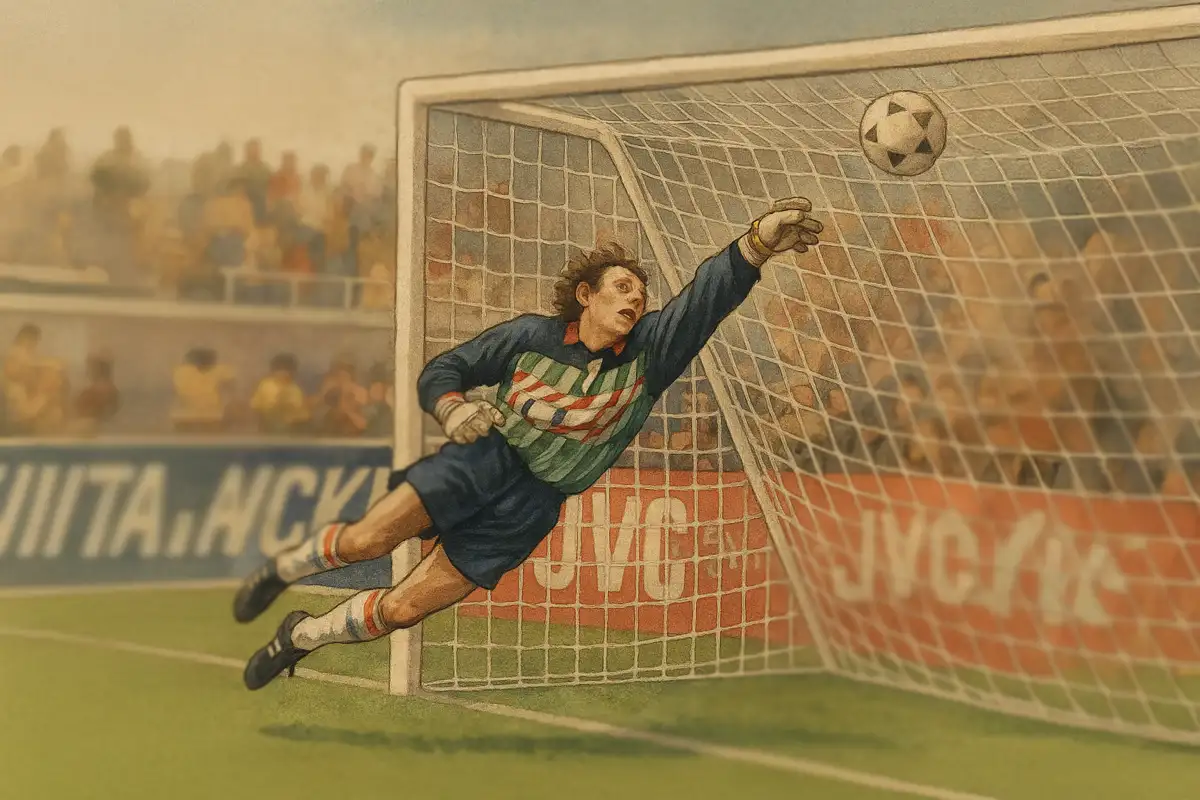
USA 1994: The Keeper of a Nation
The summer of 1994 was unlike any before. Stadiums packed with curious American fans, blazing heat, and goals aplenty. And amid the spectacle, one man stood apart—not for what he did with his feet, but with his hands: Michel Preud’homme.
Belgium were drawn into Group F with Morocco, Saudi Arabia and the Netherlands. In the opening two matches, Preud’homme kept back-to-back clean sheets in 1–0 wins. Against the Dutch, though Belgium lost 1–0, he was magnificent—denying the likes of Bergkamp and Overmars with reflexes that defied belief.
And then came the Round of 16: Belgium vs Germany.
The reigning champions fielded a fearsome XI—Klinsmann, Völler, Hässler, Matthäus. Preud’homme, though, made them human. He clawed out goalbound headers, rushed off his line with perfect timing, and pushed Belgium to the brink of an upset. The match ended 3–2 in Germany’s favour, but not before the world had fallen in love with the Belgian number one.
He was named the best goalkeeper of the tournament. FIFA’s inaugural Lev Yashin Award was his. As was the IFFHS World’s Best Goalkeeper title for 1994.
After 17 seasons in the Belgian top flight, Michel Preud’homme had finally conquered the world.
Lisbon Calling
Benfica had just won the Portuguese league in 1994, but the club was bleeding talent. Rui Costa had left for Fiorentina, Schwarz was off to Arsenal, and Yuran and Kulkov had defected to rivals FC Porto. Artur Jorge was brought in to rebuild a European contender—but it all started with a keeper.
In the midst of title celebrations, whispers of Preud’homme’s arrival began to spread. Fans were sceptical. Thirty-five? Retirement tour? But club president Manuel Damásio and agent Luciano D’Onofrio had struck early—and secured a legend.
Preud’homme landed in Lisbon as the best goalkeeper in the world. And he played like it.
He dazzled from the first whistle. “Saint Michel,” fans called him, and not lightly. Even in the Super Cup defeat to Porto or during turbulent Champions League campaigns, he remained an icon. In 1996, he helped Benfica win the Taça de Portugal, and across five seasons, was often their only beacon in years of darkness.
Madrid’s Call—and the Love That Stayed
In 1996, Real Madrid came calling. Fabio Capello wanted him. At 37, Preud’homme was ready for the Santiago Bernabéu. But Benfica stalled. They tried to sign Chilavert. When that fell through, Madrid turned to Bodo Illgner—who would help them lift the Champions League two years later.
“Imagine if I had gone,” he later mused.
But he stayed. And he wasn’t upset. Because something had shifted. Lisbon wasn’t just a city; it was home.
Preud’homme retired in 1999, aged 40. He had outlived doubt and silence. His smile, humility, and impossible saves had etched him into Benfica’s story. Even Neno, the man whose place he took, became his closest friend and roommate.
Legacy
Michel Preud’homme’s career was not defined by silverware alone, though he won plenty. He conquered Belgium with Standard and Mechelen, lifting domestic cups and league titles. He shocked Europe with Mechelen’s unforgettable triumphs in the Cup Winners’ Cup and Super Cup. He was voted Belgium’s Footballer of the Year in 1989—unprecedented for a goalkeeper. He ruled the world’s stage in 1994, when all eyes finally turned his way. And in Lisbon, he transcended glory. He became adored.
He was football’s late arrival. But not too late.
In an age that worships youth, Michel Preud’homme proved something timeless: that greatness is not always early, but it always leaves its mark.
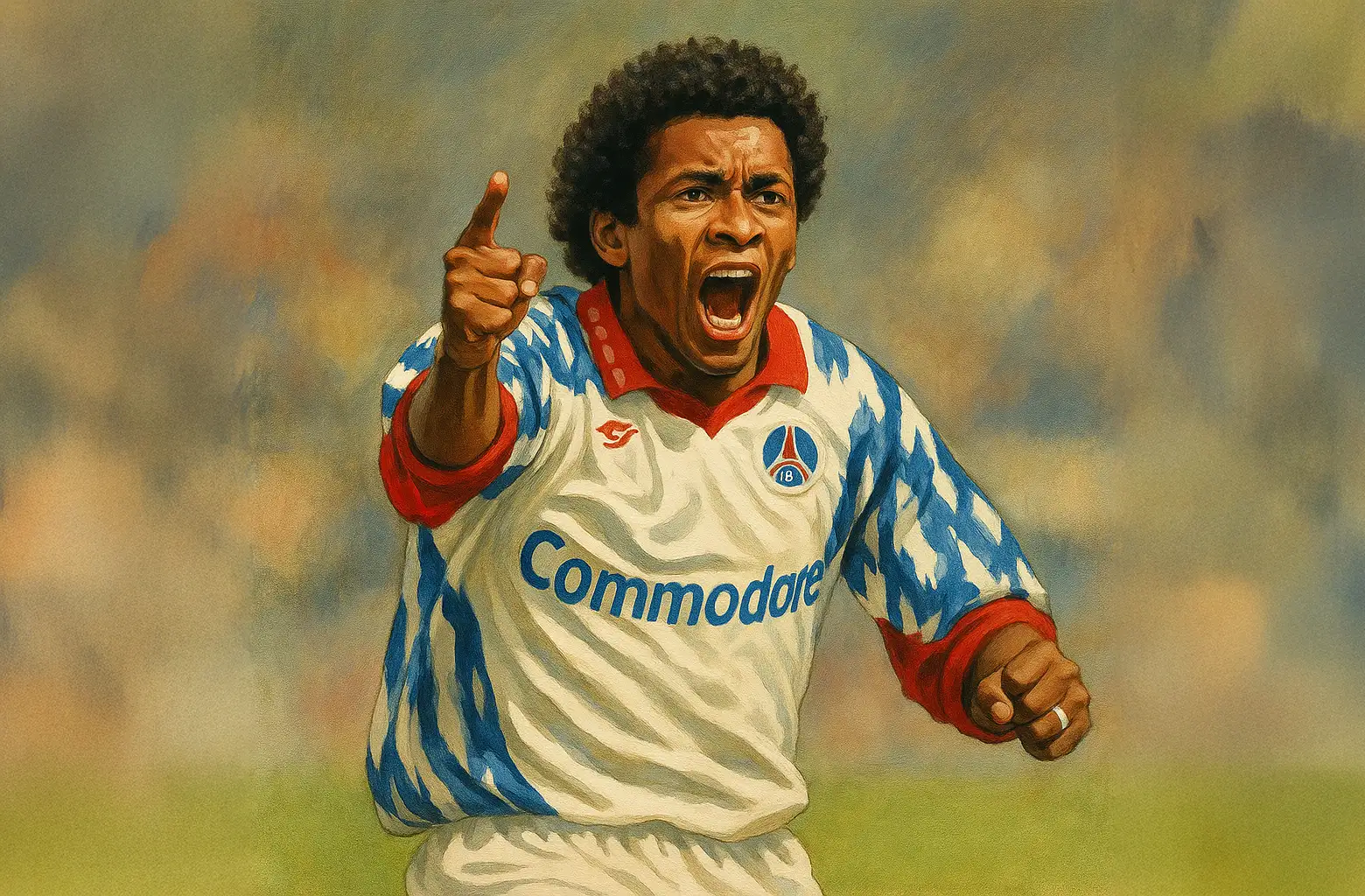
Valdo – provisory title
He dribbled like a dancer, played with a smile, and made chaos look beautiful. A rebel with the ball, and a genius no system could ever hold down.
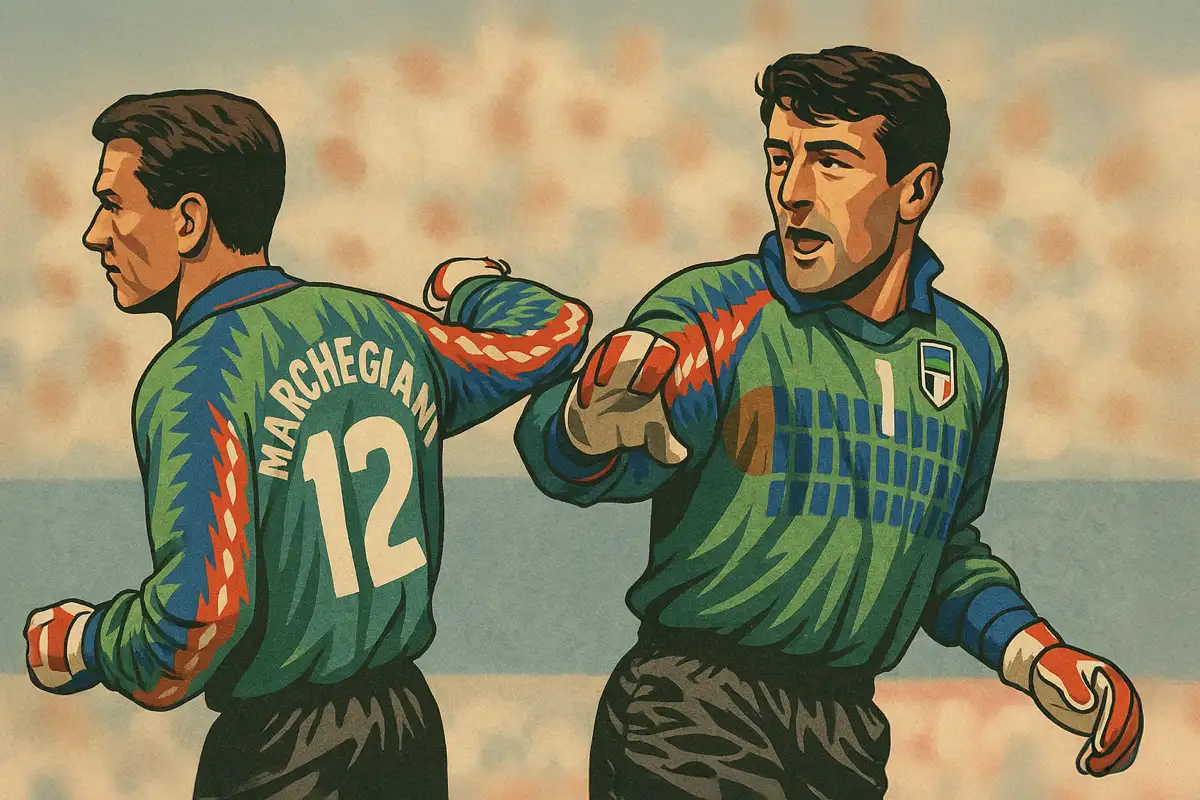
Italy’s 90’s Goalkeepers – provisory title
He dribbled like a dancer, played with a smile, and made chaos look beautiful. A rebel with the ball, and a genius no system could ever hold down.
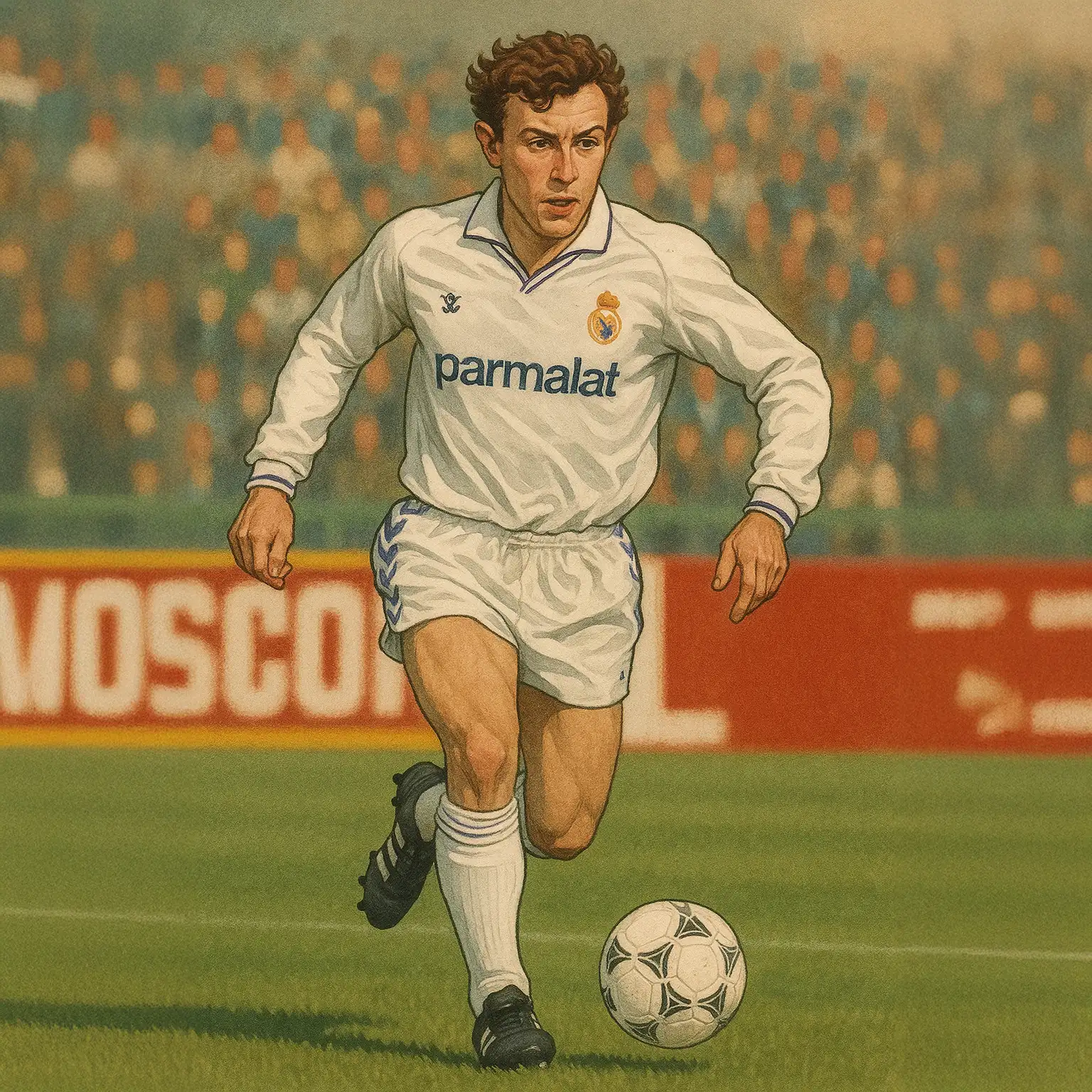
Emilio Butragueño – provisory title
He dribbled like a dancer, played with a smile, and made chaos look beautiful. A rebel with the ball, and a genius no system could ever hold down.

